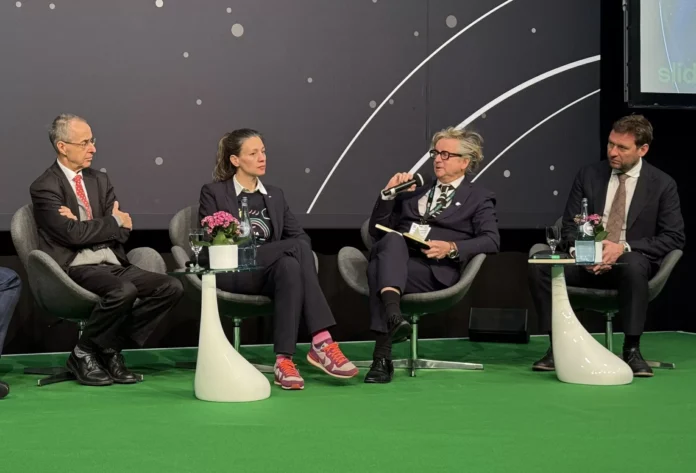The recent election of Donald Trump as the President of the United States has caused shock and concern among many in Europe’s space community. With his unconventional approach to politics and controversial policies, there is growing uncertainty about the future of space cooperation between Europe and the US.
Many experts and officials in the European space industry are now calling for increased investment in space capabilities, in order to reduce Europe’s reliance on the United States. This sentiment has been echoed by various leaders in the field, who believe that Europe must take a more independent approach in order to continue its advancements in space exploration and technology.
The European Space Agency (ESA) is a prime example of the growing concerns about the potential impact of the Trump administration on space cooperation. The agency has a long-standing partnership with NASA and relies heavily on the US for its space missions, technology and funding. But with the rise of protectionist policies and the proposed budget cuts to science and technology programs, many fear that this partnership may be in jeopardy.
In light of this, many experts are urging Europe to increase its spending on space capabilities and take a more self-sufficient approach. This would not only secure Europe’s position as a major player in space exploration, but also reduce its reliance on the US and mitigate any potential disruptions in cooperation.
One of the key areas of concern is the future of the International Space Station (ISS), which has been a symbol of international cooperation in space for over two decades. The ISS is currently operated jointly by the US, Russia, Europe, Japan and Canada, with the majority of funding and resources coming from the US. However, with Trump’s plans to cut funding to NASA’s budget and potentially withdraw from international agreements, the future of the ISS is uncertain.
In response to these concerns, ESA Director General Jan Woerner has emphasized the need for Europe to have its own capabilities in space. He stated, “We need to be independent in areas we rely on the US for, such as transport to and from the ISS, and we need to invest in our own launchers and technologies.”
This sentiment is shared by many in the European space industry, who see this as an opportunity for Europe to take a more prominent role in space exploration and technology. This sentiment has also been reflected in the recent budget proposal by the European Commission, which includes a significant increase in funding for the EU’s space programs.
The European Union’s Galileo satellite navigation system is another area that could potentially be impacted by the Trump administration. The system, which was developed to provide an alternative to the US-operated GPS, has already faced delays and budget issues. With the US potentially withdrawing its support, there are concerns about the future of this project.
However, this is also seen as an opportunity for Europe to develop its own independent satellite navigation system. The European Commission has proposed additional funding for the Galileo program, with the aim of making it fully operational by 2020.
Despite the uncertainties and challenges, there is still optimism within the European space community. Many see this as an opportunity for Europe to take a more independent and global approach to space exploration. This sentiment is reflected in the recent statement by ESA astronaut Thomas Pesquet, who emphasized the need for international cooperation in space, stating, “Space is not a place for competition, but for collaboration.”
It is clear that the election of Donald Trump as US President has raised concerns and uncertainties in the European space community. However, it has also sparked a call for Europe to increase its investments in space capabilities and take a more independent approach. This could lead to exciting advancements and opportunities for Europe in the field of space exploration and technology.
In conclusion, it is important for Europe to stay vigilant and proactive in the face of potential changes in space cooperation with the US. By increasing investments in space capabilities and taking a more independent approach, Europe can secure a strong position in the global space industry and continue its contributions to the advancement of science and technology for the betterment of humanity. As ESA Director General Jan Woerner stated, “We must not lose sight of our goals and vision for space, even in the face of uncertainty.” Let us all come together and work towards a brighter and more collaborative future in space.

